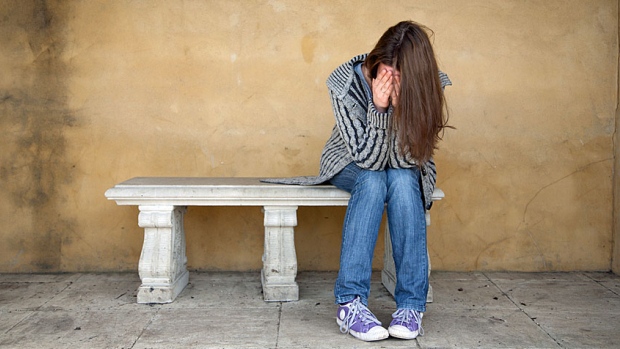Anxiety (that sentiment of fear, dread, stress and panic) is well known to all of us. Hippocrates wrote about it in the 4th century BCE. As did Søren Kierkegaard in the 1860s. Also, Sigmund Freud recalls the illness in 1926.
Be that as it may, bounce to the present and we’re seeing this illness more and more often, particularly at kids.
Pharmaceutical medications have a tendency to be the exemplary treatment for treating anxiety (and also the greatest cash provider). Cognitive treatment is a typical approach too. Those with a holistic bent regularly swing to contemplation, yoga, massage and other relaxation systems. Music treatment has likewise been utilized with some success. In any case, now neuroscientists in the U.K. have focused in on a solitary melody that outcomes in an amazing 65% decrease in general anxiety…
Anxiety and Generation Y

A 2013 study found that 57% of American female college students announced scenes of “overwhelming anxiety”. And in the UK, the charity YouthNet found 33% of young ladies (and 1 in 10 young men) suffer from panic attacks.
Marjorie Wallace, CEO of the philanthropy Sane, trusts that generation Y (those born in the 80′ and in the 90′) is the period of desperation. “Growing up has always been troublesome, however this feeling of desperation? That is new,” she said.
Rachael Dove writes: Anxiety the epidemic sweeping through Generation Y:
“All in all, what’s happening? The ascent of innovation, overly protecting parenting and “exam-factory” teaching are among the reasons analysts recommend for our generational anxiety. Another, raised on numerous occasions by my co-workers and by specialists I spoke to, is the luxury (as ungrateful as it sounds) of too much choice”.
Pieter Kruger, a London-based psychologist, says research shows that individuals who feel they don’t have a choice are in reality stronger — mostly on the grounds that they can accuse life or others if they settle on a wrong choice. Be that as it may, if you have a range of choice, you have nobody to fault but yourself. “We become much more obsessive because we need to make the correct choice all the time” he said.
Author Claire Eastham, 26, writs on her blog We Are All Mad Here:
“I invest a ton of energy agonizing over what I will do with my life. Past generations had choice removed from their hands. If you are told what to do, there will be no pressure on you anymore”.
In our modern time, decision making can trigger a kind of loss of motion. Frequently, we will fanatically look into a wide range of choices for, say, a couple of shoes. In the end, data overload will kick in and close the entire shopping venture down, leaving us depleted and blameworthy for being injured by such an apparently straightforward task.
Innovation likewise adds to the ascent of anxiety. A decent number of millennials feel exposed without their cell phones — and are rarely without them. Mobile devices have a tendency to be their window to the world and cultivate a feeling of connectedness. Be that as it may, there’s a dark side to be better informed on social media than everybody else — also called Fomo, or the Fear of Missing Out.

“Fomo is genuine and can be an addiction that influences anxiety levels and a general feeling of wellbeing,” says Kruger.
Social media enables us to compare everything — relationships, wealth, figure, diet, beauty, way of life — with our friends, as well as with superstars. What’s more, as research has shown, time on social media “can cause depression in individuals who compare themselves with other people.”
Other than upgrading our ways of life and restricting presentation to social media (and figuring out how to work with an occasionally overpowering plenitude of choice) neuroscientists have discovered listening to a specially created song can have a significant impact over our levels of anxiety.
The Creation Of The Ultimate Anti-Stress Music
Scientists at Mindlab International in the U.K. needed to realize what sort of music brings the best condition of relaxation. The investigation included having people attempt to solve difficult puzzles (which normally set off a specific level of stress) while connected to sensors. At the same time, these people listened different songs as analysts measured their mind action, heart rate, pulse and rate of breathing.
What they found is that one melody — “Weightless” — brought about a striking 65% lower rates in people participating at this research, overall anxiety, and a 35% reduction in their typical physiological resting rates.
Strangely, the melody was particularly created to initiate this highly relaxed state. Made by Marconi Union, the artists collaborated with sound therapists to deliberately organize harmonies, rhythms and bass lines, which can turn slow the audience’s heart rate and blood pressure, while likewise bringing down stress hormones like cortisol.
Actually, the music is effective to the point, that big number of the female participants ended up noticeably sleepy — to the point where lead analyst Dr. David Lewis-Hodgson advises against listening to it while driving.
Listen the song and leave your comments, with the effect the song has on you, below:
